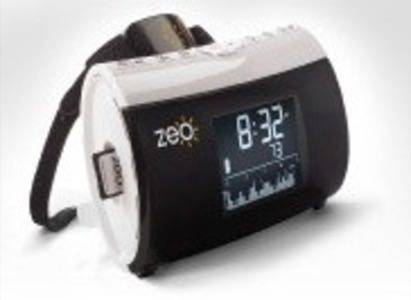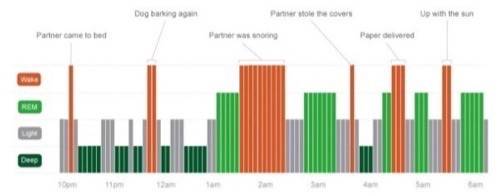One of the big trends on the Internet today is people’s penchant for measuring every aspect of their lives with the help of diaries and personal sensors. Most of the tools allow you to quantify your daily activity deal with fitness and exercise, but a number of new gadgets also try to measure how well you sleep. One of these tools is the Zeo Personal Sleep Coach, which has been on the market for a while but is currently making a major marketing push. The company’s headband measures the quality of your sleep and allows you to evaluate the quality of sleep you are getting with the help of a bedside companion device and online tools.

Today, the company is also announcing a development API that will allow third-party developers to access Zeo’s data. Thanks to this, a tool that measures your exercise data can now mash this information up with your sleep data (total sleep time, amount of deep and REM sleep etc.) and give you a better overview of your general body metrics. The first two products that will integrate Zeo’s data are DailyBurn and the mobile, GPS-based iPhone and Android fitness tool RunKeeper.


At $199, Zeo’s tool is definitely not cheap. The FitBit, which also measures sleep, clocks in at $99 and the popular Sleep Cycle iPhone app (which measures your movement during the night with the iPhone’s built-in motion sensors) only costs $0.99.
The Zeo, however, gives you a complete package, including a bedside radio and an adaptive alarm which works similar to Sleep Cycle and tries to wake you up when you are already in a light sleep phase. Unlike its cheaper competitors, the Zeo uses a more sophisticated EEG headband that measures your brainwave activity every two minutes. The other tools rely on motion sensors. You can find a more in-depth review of the Zeo here.

















